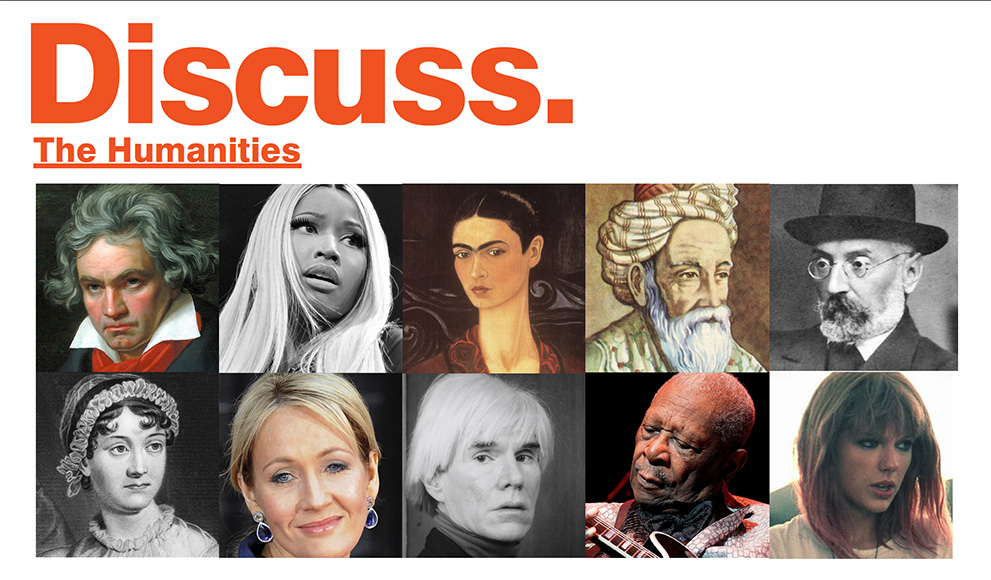A Solid Foundation In The Arts And Humanities Gives Students Tools For Future Success

Study Chaucer. Learn a language. Listen to Taylor Swift, Nicki Minaj, or Monteverdi. Read Toni Morrison. Spend time learning about a faith that is not your own. Play an instrument. Visit Lascaux caves or the collection of the Louvre. Write a poem. Pick classes that let you try any or all of these things while you’re at Wellesley, and you may leave here better for it.
“Humanities disciplines emphasize human creativity, imagination, morality and rich cultural complexity. They equip us to step outside of ourselves and re-examine our past, present, and future from viewpoints we might otherwise never inhabit,” said Thomas Hodge, professor of Russian and faculty building director of Founders Hall and Green Hall where the majority of Humanities courses are taught. “The ability to do this makes you a better poet, yes, but also a better person—a better chemist, a better economist, a better voter, you name it.”
Over the past several decades, colleges and universities across the country have seen declines in enrollment in Humanities programs. In an op-ed published this summer by the Washington Post, Kathryn Lynch, Katharine Lee Bates and Sophie Chantal Hart Professor of English and Dean of Faculty Affairs, wrote, “Majors as a percentage of all degree recipients are down by half since their peak in the 1960s.”
These declines may be thanks to questions by students, parents, policymakers and even politicians about the value Humanities programs provide, with many looking to the economic measures as the sole indicator of success. Those measures certainly do exist Lynch, for example, cited a 2014 study which demonstrated humanities and social sciences graduates make more money in peak earning years than those who major in pre-professional fields and another report which showed that humanities majors have higher acceptance rates to medical school than social science or natural science majors—but the value is much greater than just what can be shown on a resume or salary history.
No matter what a student’s eventual major, a solid foundation in the arts and humanities can help her to develop the creativity, empathy and thoughtfulness needed to be successful in her chosen career field. “We talk about training ‘women who will make a difference in the world,’” Hodge said, referring to the College’s mission. “The humanities teach our students what kind of a difference is worth making.”
This year, Wellesley is embarking on a focused effort to spread the word—on campus and beyond—about the crucial place of the Humanities in a liberal arts education. All are invited to join in the conversation this year
For now, Hodge had this advice to offer students: “Explore! These four years are your years. You have a little less than half a decade to figure out what lights your fire as a young intellectual, and that thing may well be something you did not study in high school. It could be something you never heard of before arriving here. It may well be something that has nothing to do with what your parents or social media or the news media have been telling you about.”
